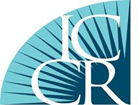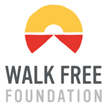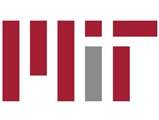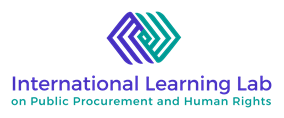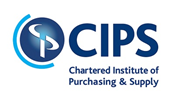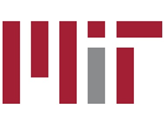.
Name of Resource | Advancing Respect for Labour Rights Globally through Public Procurement |
Type | Research |
Country / jurisdiction | Global |
Journal | Politics and Governance Journal |
Author | Martin-Ortega, Olga; Methven O’Brien, Claire |
Date of publishing | 14 December 2017 |
Description | Building on a limited emerging scholarship and policy developments, this article addresses how governments can influence workers’ rights abroad via the terms of purchase contracts. Section 2 considers legal definitions of public procurement and distinguishes primary and secondary aims of procurement under key international and regional procurement regimes. Section 3 explores new international policy frameworks on responsible global value chains and supply chains, which by contrast appear to augur the greater use of public procurement to promote labour rights globally in future. Section 4 argues, supported by analysis of the limited examples available, that public buying has the potential to positively influence enjoyment of labour rights in practice. Section 5 reflects on what the more specific impacts of public procurement in this context may be, and how public buying should complement other mechanisms for improving labour conditions across supply chains, such as social clauses in trade agreements. |
Availability | ENG: https://www.cogitatiopress.com/politicsandgovernance/article/view/1073 |
Name of Resource | Best Practice Guidance on Recruitment of Migrant Workers |
Type | Guidance |
Country / jurisdiction | Global |
Organization | Interfaith Center on Corporate Responsibility |
Date of publishing | April 2017 |
Description | The purpose of this emerging Best Practice Guidance on Ethical Recruitment of Migrant Workers is to highlight the progress some companies have made on these fronts that may serve as models for companies looking to implement ethical recruitment policies and contribute driving change at the recruitment agency level. Through the examination of eight companies in high risk sectors we provide an analysis of emerging best practices in the development of corporate ethical recruitment policies, and identify gaps for improvement. This analysis serves both companies and the investment community. |
Availability |
Name of Resource | BES 6001 – The Framework Standard for Responsible Sourcing |
Type | Guidance on policy / legislation implementation, Standard |
Country / jurisdiction | Global |
Organization | Building Research Establishment |
Description | Building Research Establishment (BRE) Global has developed a Framework Standard for Responsible Sourcing (BES 6001), along with an associated independent third-party certification scheme. The standard and certification scheme will help organizations manage and reduce the impacts throughout the supply chain. The scheme provides manufacturers with a means by which their products can be independently assessed and certified as being responsibly sourced. The scheme is recognized by the BREEAM family of certification schemes and the Code for Sustainable Homes, where credits can be awarded for construction products independently certified through BES 6001. The Responsible Sourcing League Tables show all current BES 6001 certificates, by construction product category, and the rating achieved by each company. |
Availability | ENG: https://www.bregroup.com/insights/bes-6001-framework-for-responsible-sourcing/ |
| title | BSI Human Trafficking and Supply... |
|---|
Name of Resource |
BSI Human Trafficking and Supply Chain Slavery Patterns Index |
Type | Score / Measurement / Metric |
Country / jurisdiction | Global |
Organization | British Standard Institute |
Date of initial launch | 2016 |
Description | The BSI Trafficking and Supply Chain Slavery Patterns Index estimates the risk associated with the movement and exploitation of people between 191 source countries and 193 destination countries. Each combination has been ranked from low to severe based on the risk score. The index is unique in its ability to enable companies to understand the intersection and relationship between sources of displaced people, and the likelihood of being exploited upon arrival in destination countries. The proprietary model supporting the index results in a clear, intuitive presentation of tens of thousands of pairings of source/destination countries and their relative risk. |
Availability |
Name of Resource |
Confronting root causes: forced labour in global supply chains |
| Expand | ||
|---|---|---|
| ||
Ethical and Sustainable Procurement |
Type | Report / analysis |
Country / jurisdiction | Global |
Organization | openDemocracy, Sheffield Political Economy Research Institute (SPERI), University of Sheffield |
Date of publishing | September 2014 |
Description | The report is organized around a metaphor – the classical economic metaphor of ‘supply and demand’. Within mainstream economic theory, the price of any particular good is not determined by the individuals who buy and sell it. Instead, the price results from a system-wide balance between how much of it is available in the world (supply), how many people want it, and how badly (demand). The report looks at eight of these dynamics: four relating to supply and four relating to demand. On the supply side, the four dynamics the report looks at all contribute to creating a pool of workers vulnerable to exploitation. These include: poverty; identity and discrimination; limited labour protections and restrictive mobility regimes. The demand side includes: concentrated corporate power and ownership; outsourcing; irresponsible sourcing practices; and governance gaps. |
Availability |
Name of Resource | Ethical and Sustainable Procurement |
Type | Report/analysis |
Country / jurisdiction | Global |
Organization | Chartered Institute of Purchasing and Supply, Traidcraft, Walk Free |
Date of publishing | 2013 |
Description | The guide introduces procurement professionals to the key concepts behind ethical procurement and provides advice for getting started. It includes a 7 step tool of guidance at each stage of the procurement cycle to minimize risk, as well as considerations to include on a buyer/supplier performance score card. The guide is a starting point and is aimed to help improve workers’ conditions in all situations, especially where buyers deal with businesses who may operate outside the law (often without the buyers’ knowledge), or those who fail to implement minimum legislative requirements. |
Availability | ENG: https://www.cips.org/Documents/About%20CIPS/CIPS_Ethics_Guide_WEB.pdf |
| title | Ethical Audits and the Supply Chains... |
|---|
Name of Resource |
Ethical Audits and the Supply Chains of Global Corporations |
Type | Report / analysis |
Country / jurisdiction | Global |
Organization | The University of Sheffield |
Date of publishing | January 2016 |
Description | Part one of the brief looks at the rise of ethical audits; part two considers the effectiveness of audits; and part three assesses the impact of the audit regime on global corporate governance. The brief presents new evidence and key findings and argues that: ultimately, the audit regime is ‘working’ for corporations, but failing workers and the planet; labour abuses, poor working conditions and environmental degradation within global supply chains remain widespread; audits are ineffective tools for detecting, reporting, or correcting environmental and labour problems in supply chains; audits reinforce the labour and environmental problems that civil society NGOs are striving to improve; the audit regime, with the involvement and support of NGOs, is reducing the role of states in regulating corporate behaviour and re-orientating global corporate governance towards the interests of private business and away from social goods. |
Availability |
| title | European Policy Brief: Four Principles... |
|---|
Name of Resource |
European Policy Brief: Four Principles for Addressing Trafficking, Forced Labour and/or Slavery (TFLS) in Supply Chains |
Type | Report / analysis |
Country / jurisdiction | Global |
Organization | DemandAT, International Centre for Migration Policy Development |
Date of project | 2014 - 2017 |
Description | Seeking to map and understand this emerging field of intervention, the DemandAT project has recently completed a project documenting and analyzing initiatives launched to address trafficking, forced labour and slavery (TFLS)-supply chains nexus as part the DemandAT project on 'demand side measures against trafficking'. The research involved extensive desk-based identification and analysis of 97 initiatives at the TFLS-supply chain nexus. Fieldwork in Qatar, the U.S. and Malaysia then explored selected initiatives in further depth. The Policy Brief covers four issues: 1) the question of responsibility and liability in supply chains; 2) enforceability of initiatives; 3) prospects for worker participation; and 4) the role of public regulation to protect workers’ and migrants’ rights and labour standards. |
Availability |
| title | From Haute Couture to Fast-Fashion:... |
|---|
Name of Resource |
From Haute Couture to Fast-Fashion: Evaluating Social Transparency in Global Apparel Supply Chains |
Type | Research, Report / analysis |
Country / jurisdiction | Global |
Organization | MIT Centre for Transportation & Logistics |
Author | Bozic, Denis |
Date of publishing | June 2017 |
Description | The main goal of this thesis is to establish a framework and methodology that can be used by consumers, brands, and regulatory bodies to define and evaluate social transparency in global supply chains. Building on previous research in this field, the researchers construct a framework that distinguishes external and internal transparency, after which we identify five factors that drive supply chain transparency. Adaptive survey is then designed and used to evaluate both external and internal transparency, while investigating the role of each factor in shaping supply chain transparency. The thesis focuses primarily on external transparency and two factors: legal and political complexity and supply chain communication. |
Availability | ENG: https://dspace.mit.edu/bitstream/handle/1721.1/111237/1003284362-MIT.pdf?sequence=1&isAllowed=y |
Name of Resource |
Human Rights and Business Country Guide |
Type | Report / analysis, Interactive source |
Country / jurisdiction | Global |
Organization | The Danish Institute for Human Rights |
Date of initial launch | 2010 |
Description | The Human Rights and Business Country Guide provides country-specific guidance to help companies respect human rights and contribute to development. For companies to manage their potential human rights impacts, they must have comprehensive information about the local human rights context in which they operate. The Country Guide provides a systematic overview of human rights issues for particular attention by companies. For each issue, the guide provides guidance on how to ensure respect for human rights in company operations or in collaboration with local suppliers and business partners. The Country Guide is not only a resource, but a process. |
Availability | ENG: https://globalnaps.org/ |
| title | Human Rights Risks in Global Supply... |
|---|
Name of Resource |
Human Rights Risks in Global Supply Chains: Applying the United Kingdom Modern Slavery Act to the Public Sector |
Type | Research |
Country / jurisdiction | Global, United Kingdom |
Journal | Global Policy Journal |
Author | Martin-Ortega, Olga |
Date of publishing | November 2017 |
Description | This article analyses the application of the Transparency in Supply Chains provision (TiSCs) of the United Kingdom Modern Slavery Act (2015) to the public sector. Since 2016 commercial organizations are obliged to report on efforts to identify, prevent, and mitigate modern slavery in their supply chain. This includes over one hundred higher education institutions (HEIs). This article finds that while most reporting in the first year fall short of what is expected of institutions according to Government guidance, the exercise of reporting has initiated an important process of awareness. HEIs face a steep learning curve to develop effective human rights due diligence in their supply chain however, the TiSCs obligation has proved a catalyst for a wider process of understanding human rights risks and responsibilities of the public sector, and more specifically HEIs. |
Availability | ENG: https://onlinelibrary.wiley.com/doi/abs/10.1111/1758-5899.12501 |
Name of Resource |
Implementation of Directive 2014/95 / EU (CSR- Directive) in Denmark, Germany, Belgium, Finland, France, Netherlands, Austria, Sweden, United Kingdom |
Type | Report / analysis |
Country / jurisdiction | Denmark, Germany, Belgium, Finland, France, Netherlands, Austria, Sweden, United Kingdom |
Organization | Swiss Institute of Comparative Law |
Date of publishing | 30 April 2017 |
Description | European Union law requires large companies to disclose certain information on the way they operate and manage social and environmental challenges. This helps investors, consumers, policy makers and other stakeholders to evaluate the non-financial performance of large companies and encourages these companies to develop a responsible approach to business. Directive 2014/95/EU (CSR Directive) lays down the rules on disclosure of non-financial and diversity information by large companies. This directive amends the accounting directive 2013/34/EU. Companies are required to include non-financial statements in their annual reports from 2018 onwards. The report analyses how the Directive 2014/95/EU is being implemented in Denmark, Germany, Belgium, Finland, France, the Netherlands, Austria, Sweden, and the United Kingdom. |
Availability | DEU: https://www.isdc.ch/media/1378/e-2017-12-16-173-richtlinie-2014-95-gz.pdf |
Name of Resource | International Learning Lab on Public |
Procurement and Human Rights | |
Type | Platform for co-operation |
Country / jurisdiction | Global |
Organization | International Learning Lab on Public Procurement and Human Rights |
Date of initial launch | 2015 |
Description | The International Learning Lab is a network of academics, non-governmental organizations, national human rights institutions (NHRIs) and procurement professionals across Europe and the United States working together with the aim of facilitating the implementation of the UN Guiding Principles on Business and Human Rights (UNGPs) in the context of public procurement. The International Learning Lab on Public Procurement and Human Rights was established by the International Corporate Accountability Roundtable (ICAR-United States), the Danish Institute for Human Rights and the Harrison Institute at Georgetown University Law Center. The Learning Lab’s global network will be a platform and mechanism for: experience-sharing among procurement actors on approaches to integrating respect for human rights; generating knowledge about public procurement law and policy and human rights; producing and disseminating tools and guidance to build capacity to integrate human rights issues among procurement professionals; and promoting coherence between procurement and human rights in international and regional frameworks and initiatives. |
Availability |
| title | London Universities Purchasing... |
|---|
Name of Resource |
London Universities Purchasing Consortium Slavery and Human Trafficking Statement |
Type | Report / analysis |
Country / jurisdiction | United Kingdom |
Organization | London Universities Purchasing Consortium |
Date of publishing | 2018 |
Description | This Statement is designed to satisfy the requirements of Section 54 of the Modern Slavery Act 2015, by informing its Members, staff, and public stakeholders about LUPC and its policy with respect to modern slavery, human trafficking, forced and bonded labour and labour rights violations in its supply chains and the steps taken to identify, prevent and mitigate the risks. This is LUPC’s fourth annual statement to be published under the Act. |
Availability |
| title | Modern Slavery Act 2015 — impact... |
|---|
Name of Resource |
Modern Slavery Act 2015 — impact on Supply Chains and the role of Procurement and actions required to support the organisation |
Type | Report/analysis |
Country / jurisdiction | United Kingdom |
Organization | Chartered Institute of Procurement and Supply |
Date of publishing | 2015 |
Description | The United Kingdom Modern Slavery Act came into force in 2015. The insight gives an overview of the Act, focusing on the impact on supply chains and the role of procurement and actions required to support the organization. The document also makes reference to other CIPS guidance and tools, such as the Ethical and Sustainable Procurement Guide and CIPS Ethical Procurement and Supply e-learning course and online test. |
Availability |
Name of Resource |
Modern Slavery and Human Rights in Global Supply Chains: Roles and Responsibilities of Public Buyers |
Type | Research |
Country / jurisdiction | Global, United Kingdom |
Journal | Global Policy Journal |
Author | Martin-Ortega, Olga |
Date of publishing | January 2017 |
Description | This Policy Paper provides insights from the first year of reporting under the United Kingdom Modern Slavery Act and guidance for higher education institutions in the development of human rights due diligence frameworks so that they can rise to the challenge of their responsibilities in the wider effort to combat modern slavery both home and abroad. |
Availability |
| title | National Action Plans on Business &... |
|---|
Name of Resource |
National Action Plans on Business & Human Rights: an |
analysis | |
Type | Report / analysis |
Country / jurisdiction | Global |
Organization | The Danish Institute for Human Rights |
Date of publishing | November 2016 |
Description | This source looks at published NAPs to identify information on both their process and content. The information contained within this analysis was gathered through desk research and direct correspondence with ministries and civil servants responsible for the NAPs. |
Availability | ENG: https://mk0globalnapshvllfq4.kinstacdn.com/wp-content/uploads/2018/11/nap-analysis-full-report.pdf |
Name of Resource | National Action Plans on Business and Human Rights Toolkit |
Type | Report / analysis |
Country / jurisdiction | Global |
Organization | The International Corporate Accountability Roundtable, The Danish Institute for Human Rights |
Date of publishing | 2017 |
Description | In August 2013, the Danish Institute for Human Rights (DIHR) and the International Corporate Accountability Roundtable (ICAR) launched a joint project to develop guidance on NAPs in the form of a toolkit for use by governments and other stakeholders. DIHR and ICAR undertook a global programme of consultation with representatives of governments, civil society, businesses, investors, academia, NHRIs, and regional and international organizations, which fed into the contents of the first edition of this Toolkit, published in 2014 and updated in 2017. |
Availability |
| title | Protecting human rights in the supply... |
|---|
Name of Resource |
Protecting human rights in the supply chain - U procurement practitioners |
| Expand | ||
|---|---|---|
| ||
Responsible Recruitment: Remediating Worker-Paid Recruitment Fees |
| Expand | ||
|---|---|---|
| ||
Supply Chain Code of Conduct |
Type | Guidance on policy / legislation implementation |
Country / jurisdiction | United Kingdom |
Organization | London Universities Purchasing Consortium, University of Greenwich, Chartered Institute of Procurement and Supply |
Date of publishing | 24 May 2017 |
Description | The guide was developed for practitioners in the public sector on protecting human rights in supply chains and offers encouragement for buyers, decision-makers and opinion-formers to identify and understand the risks, develop appropriate mitigating actions and promote respect for human rights in supply chains. Sections of the guide set out what the problems are faced by the public sector, why the issue is so important, and how good practice can help minimize the risks. |
Availability | ENG: https://www.cips.org/en-gb/news/news/new-guidance-published-for-public-procurement-practitoners/ |
Name of Resource | Protecting Rights by Purchasing Right. The Human Rights Provisions, Opportunities and Limitations Under the 2014 EU Public Procurement Directives |
Type | Report / analysis |
Country / jurisdiction | Global |
Organization | Institute for Human Rights and Business |
Date of publishing | November 2015 |
Description | The paper has been produced to assist EU Member States in understanding the range of opportunities, as well as limitations, within the 2014 EU Public Procurement Directives to integrate human rights considerations into their national rules and practices on public procurement. This Paper limits its focus to provisions concerning preventative measures to avoid adverse impacts on people, rather than some of the more broad-based measures aimed at achieving additional positive social benefits through a public contract. |
Availability |
Name of Resource | Responsible Recruitment: Remediating Worker-Paid Recruitment Fees |
Type | Report / analysis |
Country / jurisdiction | Global |
Organization | Institute for Human Rights and Business, Equidem Research & Consulting |
Date of publishing | November 2017 |
Description | The report focuses on remediation of recruitment-related adverse impacts. Some companies have sought to reimburse worker-paid recruitment fees. This is an important step and consistent with the UN Guiding Principles on Business and Human Rights which calls on companies to provide for or cooperate in remediation when they have caused or contributed to adverse human rights impacts. However, businesses face serious challenges in repaying affected migrant workers. This report identifies the challenges related to reimbursing recruitment fees and provides recommendations to businesses on how to apply remediation policies across their activities. |
Availability |
Name of Resource | Supply Chain Code of Conduct |
Type | Policy |
Country / jurisdiction | Global |
Organization | The University of Glasgow |
Date of publishing | 15 November 2016 |
Description | The University of Glasgow has adopted the Supply Chain Code of Conduct in alignment with the sustainable procurement programme led by Advanced Procurement for Universities and Colleges and measured through the Chartered Institute of Procurement and Supply (CIPS) Sustainability Index. The Code of Conduct is a part of University’s Procurement Policy and incorporated into the all procurement and supply chain activities including tendering and contract procedures. |
Availability | ENG: https://www.gla.ac.uk/myglasgow/sustainability/sustainableprocurement/ |
Name of Resource |
Supply Chain Sustainability: A Practical Guide for Continuous Improvement |
| Expand | ||
|---|---|---|
| ||
Sustainable Supply Chains |
Type | Report |
Country / jurisdiction | India |
Organization | Centre for Responsible Business |
Date of publishing | 2010 |
Description | This publication offers practical guidance on how to develop a sustainable supply chain programme based on the values and principles of the Global Compact. Featuring numerous examples of good corporate practice, the Guide assists companies in setting priorities for action that can lead to continuous performance improvement. This Guide is designed to help companies initiate and advance their supply chain sustainability efforts. |
Availability | ENG: https://www.bsr.org/reports/BSR_UNGC_SupplyChainReport.pdf |
Name of Resource | Sustainable Supply Chains |
Type | Knowledge/information hub |
Country / jurisdiction | Global |
Organization | MIT Centre for Transportation & Logistics |
Date of initial launch | 2018 |
Description | The MIT Center for Transportation & Logistics founded Sustainable Supply Chains in order to connect research outcomes to practical settings, enabling companies and stakeholders to leverage supply chains as a beneficial force to reaching global sustainable development goals. Sustainable Supply Chain aims to improve visibility of supply chain impacts and develop strategies to help reduce them, so companies can better address consumer, political, and shareholder concerns. |
Availability | ENG: https://ctl.mit.edu/research/current-projects/sustainable-supply-chains |
Name of Resource | The Business and Human Rights Guidebook and E-learning |
Type | Guidance on policy / legislation implementation, Capacity Building |
Country / jurisdiction | Global |
Organization | The Danish Institute for Human Rights |
Date of publishing | November 2013 |
Description |
The Business and Human Rights Guidebook and E-learning |
for National Human Rights Institutions (NHRIs) provide guidance and resources on the business and human rights field, including examples of how NHRIs can use their Paris Principles mandate to engage on business and human rights issues. The Guidebook and E-learning include the following components: international human rights law frameworks relevant to business and human rights; national human rights institutions’ mandate on business and human rights; the three pillars of the UN Protect, Respect and Remedy Framework and UN Guiding Principles on Business and Human Rights – the state duty to protect, the corporate responsibility to respect and access to remedy; NHRI good practice examples in the area of business and human rights. | |
Availability | ENG: https://www.humanrights.dk/business/tools/guidebook-e-learning-nhris |
Name of Resource | The National Pact To Eradicate Slave Labor |
Type | Policy, Platform for co-operation, Monitoring / Enforcement mechanism |
Country / jurisdiction | Brazil |
Organization | International Labour Organization, Instituto Ethos and Observatorio Social and Reporter Brasil. Currently led by InPACTO—the Institute for the National Pact to Eradicate Slave Labour |
Date of signature | 19 May 2005 |
Description | Based on the National Pact for the Eradication of Slave Labour, major companies not only commit to prevention and eradication of forced labour within their own organizations and their supply chains, but also agree to be monitored. |
The National Pact To Eradicate Slave Labor
The National Pact is a voluntary commitment undertaken by some 200 enterprises with the aim of dignifying and modernizing labour relations in production chains. The National Pact has placed efforts to dignify, formalize and modernize labour relations in all economic sectors on the agenda of entrepreneurs and Brazilian society as a whole. The signatory companies represent 20 percent of Brazil’s gross domestic product, and some of the following commitments are included in the pact: to define specific objectives for the regularization of labour relations in these production chains; to define commercial restrictions on enterprises and individuals identified in the production chain as using degrading working conditions associated with the practices that characterize slavery; to support social reintegration and production measures for workers still in degrading or inhuman labour relations; to support measures providing information to workers vulnerable to enticement into slave labour, together with publicity campaigns to prevent slavery. | |
Availability | ENG: http://reporterbrasil.org.br/documentos/national_agreement.pdf |
| title | United Kingdom Public Sector - CIPS... |
|---|
Name of Resource |
United Kingdom Public Sector - CIPS Ethical Procurement and Supply (2019) E-learning | |
Type | Capacity Building |
Country / jurisdiction | United Kingdom |
Organization | Chartered Institute for Procurement and Supply (CIPS) |
Date of publishing | 2019 |
Description | The CIPS e-learning on Ethical Procurement and Supply provides introductory training on human trafficking and other ethical procurement issues. The training is currently free for CIPS members. The course explores: corruption, fraud, bribery and exploitation; what they are and how they can be eradicated; human rights and forced labour in supply chains; the implications, the risks and how to eradicate, content provided by the Walk Free Foundation; individual moral and social conscience when it comes to ethics and transparency in procurement; impact on the environment; how unmanaged and poor practices can impact the environment, the risks for the procurement organization and how procurement can drive through more positive behaviours. |
Availability |

